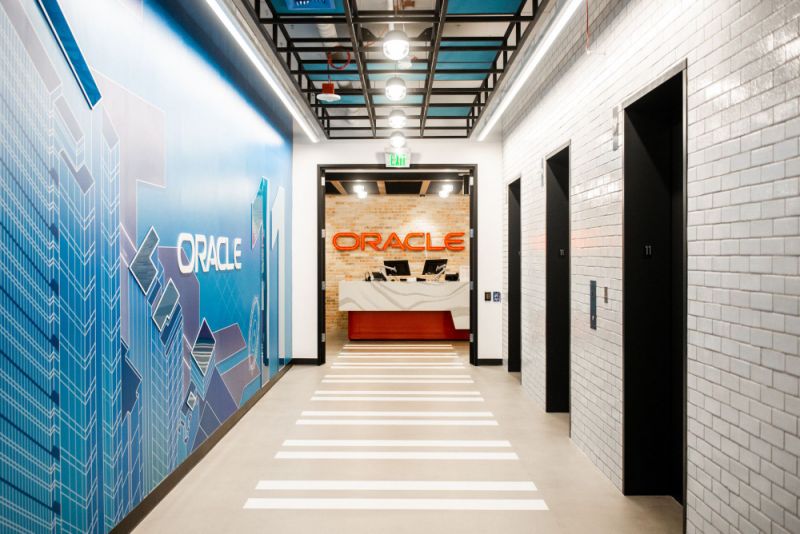
(Bloomberg) — Oracle Corp. gave a sales forecast for the current quarter that was in line with analysts’ estimates, signaling muted demand for the company’s software amid its uneven transition to cloud computing.
Revenue will increase 1% to 3% in the fiscal third quarter, Chief Executive Officer Safra Catz said Thursday on a conference call with analysts. Wall Street projected a 2.3% jump.
Earlier, the world’s second-largest software maker reported sales gained less than 1% to $9.61 billion in the period that ended Nov. 30, short of analysts’ projections of $9.65 billion. Shares declined 3% in extended trading after closing at $56.47 in New York. The stock has gained 25% this year.
Oracle’s report was the first since the October death of Mark Hurd, its top sales executive and one of the company’s two chief executive officers. Chairman Larry Ellison said on the call that the company had no plans to replace Hurd, leaving Catz as sole CEO. He pointed toward Oracle’s next line of executives, who lead business divisions, saying, “those people will be the next CEO when Safra and I retire, which will be no time soon.”
Since Hurd’s death, Ellison and Catz have sought to reassure investors about the company’s stability, emphasizing Oracle’s advantage in the market for financial planning applications, where it’s seeing some of its strongest sales growth.
While Oracle has made little headway in its effort to compete with the biggest cloud companies to rent computing power and storage, it remains a leader in database software. Now, the company is betting on its new Autonomous Database, which runs without a need for human administrators, to spur revenue in the face of strong competition from Amazon.com Inc.’s cloud division.
After inconsistent sales growth the past five years, Catz pledged to investors in September that revenue would accelerate this fiscal year and next, and that earnings per share would grow by a double-digit percentage. To help reach that goal, the company that month announced a new artificial intelligence-driven operating system, as well as partnerships with software makers such as VMware Inc. and Box Inc.
In the fiscal second quarter, revenue from cloud services and license support climbed 2.6% to $6.8 billion. While that metric includes sales from hosting customers’ data on the cloud, a large portion is generated by maintenance fees for traditional software housed on clients’ corporate servers.
Cloud license and on-premise license sales decreased 7.5% to $1.13 billion in the period, suggesting the company is signing fewer new deals.
Profit, excluding certain items, was 90 cents a share, compared with analysts’ average estimate of 89 cents. In the current quarter, Oracle projected earnings of 95 cents a share to 97 cents a share. Analysts, on average, estimated 96 cents a share.
(Updates with forecast in the second paragraph)
To contact the reporter on this story: Nico Grant in San Francisco at [email protected]
To contact the editors responsible for this story: Jillian Ward at [email protected], Andrew Pollack
<p class="canvas-atom canvas-text Mb(1.0em) Mb(0)–sm Mt(0.8em)–sm" type="text" content="For more articles like this, please visit us at bloomberg.com” data-reactid=”31″>For more articles like this, please visit us at bloomberg.com
©2019 Bloomberg L.P.





